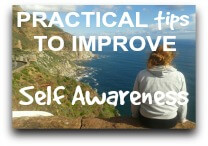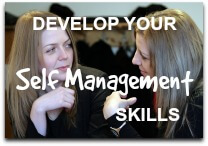- Home
- Emotional Intelligence
- Relationship Management
Relationship Management
Relationship management allows you to connect with others in ways that help them feel understood and supported. Managing relationships is an essential emotional intelligence skill that enables effective leadership and the ability to manage personal change.
By Mark Connelly Updated: 1 November 2023
Managing relationships is much more than being friendly. It takes effort and intention (and some strategy) to get the best from a situation and manage the way people respond.
A Core Domain of Emotional Intelligence
Emotional intelligence consists of four basic capabilities, or domains. These are:
- Self Awareness
- Self Regulation
- Social Awareness
- Relationship Management (this page)
This page focuses on managing relationships - the ability to inspire and influence others and sort out the conflicts that arise.
This is one of the domains of emotional intelligence proposed by Daniel Goleman. Use the links above to find out about the other domains or get an overview of emotional intelligence here.
The Importance of Relationship Management
In our networks of personal and professional connections a strong awareness of relationship management is a central factor. This ability is built on all the other domains of emotional intelligence and influences many areas of our lives including personal and work relationships and emotional intelligence in leadership.
Emotional intelligence serves as a foundation for developing meaningful connections. It's the capacity to understand and manage our emotions while recognizing and responding to the emotions of others.
Responding correctly to the subtle dynamics of relationships can be difficult. This is particularly true if you experience neurodiversity. I have worked with many clients who prefer to focus on building their EI strengths in the domains of self awareness and self regulation.
Leading with emotional intelligence is recognized as an essential skill in the professional arena. Leaders who bring emotional intelligence to their management styles are able to create workplaces characterized by trust, empathy, and open communication. Relationship management is central to building teams in which members collaborate and feel valued.
So are relationships about luck, or is there something we can do to influence them?
One thing you can be sure of is that if you're going to manage relationships effectively you'll need to use self awareness, self regulation and social awareness to understand what's going on and how it's affecting you.
You see, effective management of relationships relies on all the abilities in the three domains of emotional intelligence that I've highlighted above.
 Photo by Clem Onojeghuo
Photo by Clem OnojeghuoFour criteria for effective relationship management
Before you can manage relationships you need to notice and manage the effect people have on you and be aware of what they are feeling and what's led to them feeling that way.
Only then can you decide how best to interact with them in order to achieve the outcome that best suits your needs (or their needs).
If you read that sentence again you'll see there are four criteria to effective relationship management:
- A decision regarding the best course of action in a particular situation.
This will be based on research you've done to understand how people are feeling and why they're feeling that way.
Based on this you'll have thought about different ways to interact with them and the different reactions you might get when you say or do something. You'll also be aware of their effect on you and how to manage this appropriately.
- An interaction with others based on the research you've done (this may be written, face to face, individual or a group interaction, for example).
- An outcome: how and what you say or do will be guided by a specific outcome you want to achieve. This makes relationship management an intentional activity.
- Your needs: the outcome you intend to achieve will be guided by your specific needs, or the business needs, at that time.
Anyone involved in the entertainment industry might find these aspects of relationship management very familiar. How do you get an audience to believe in your character and help them to feel emotion?
It's as important that in business and our personal lives we are equally aware of how we manage the relationships around us.
Competencies
According to Daniel Goleman the competencies associated with relationship management are:
- Influence: persuading others.
- Inspirational leadership: providing a vision that motivates others.
- Developing others: providing feedback and building skills and knowledge.
- Change catalyst: recognising the need for change and supporting the process.
- Conflict management: Settling disputes, differences of opinion and misunderstanding.
- Building bonds: creating and maintaining networks.
- Teamwork and collaboration: building effective teams.
The competencies of relationship management are often associated with leadership because each of these areas is typically associated with leadership.
But these competencies are equally relevant to managing personal change.
Leaders find ways to inspire and motivate by tapping into people's values and desires. They also find ways to align these with the needs of the business.
Using empathy and other EI skills leaders are able to build and maintain levels of trust.
We're all quite aware of other people’s emotions most of the time, even if our reading of those emotions is not 100% accurate. Leaders that forget this, and try to manipulate situations, quickly become distrusted if people sense they're acting falsely.

Recognizing the need for change
When it comes to managing change in our businesses, work or personal lives, it's important that we recognize the need for change and support the process of change.
Being a 'change catalyst' may take some effort, especially when change feels as if it's being forced on us. The effort is worth it as building strengths in this competency is key to effective change management.
It doesn't matter whether you're staff, middle, or senior management; if you're not able to get on board with and support the change you're heading for resistance to change.
It's essential that leaders of change effectively communicate the need for change and demonstrate their support for the process.
This is equally important at times when you're managing personal change. Finding ways to adjust to the change and support it will significantly decrease personal resistance and stress.
Improve Your Relationships
So what's the best way to improve your relationship management?
First, realize that this is not a task you can complete overnight. As with other domains of emotional intelligence the growth of skills is a life journey. However, there are things you can start doing now.
This powerful audio hypnosis download will help you to create instant connections with people and gain confidence managing your relationships.
Most important is building your awareness of, and skills in, the first three domains of emotional intelligence.
- Awareness of your emotions
(self awareness) and,
- being able to manage these emotions (self regulation) are essential abilities that support effective management of relationships.
Imagine attempting any of the competencies of relationship management listed above if you're always provoked by the reactions of others. I would humbly suggest that this is impossible.
Similarly, awareness of what other groups or individuals are feeling, and what's led to this (social awareness) is essential as it informs the possibilities for your response or intervention.
At the very least you will have considered the best way to approach a person or group in order to achieve the best outcome (ie. the one you want!).
Try This
Download this relationship management skills worksheet I created for you or make your own list of the competencies outlined earlier in this article.
To develop your ability to manage relationships it's useful to assess your skills in each of the competencies and focus your attention on what you can do to develop each one.
|
Focus on building competencies to improve relationship management.
Remember, you're not expected to be strong in every competency, but it helps to keep an open mind about developing new strengths and building on those you've got.
Next Steps:
Keep in touch by visiting our Facebook Page and clicking 'Like' to join the community.
- Home
- Emotional Intelligence
- Relationship Management
- Home
- Self Awareness
- Relationship Management
- Home
- Self Regulation
- Relationship Management
- Home
- Social Awareness
- Relationship Management






